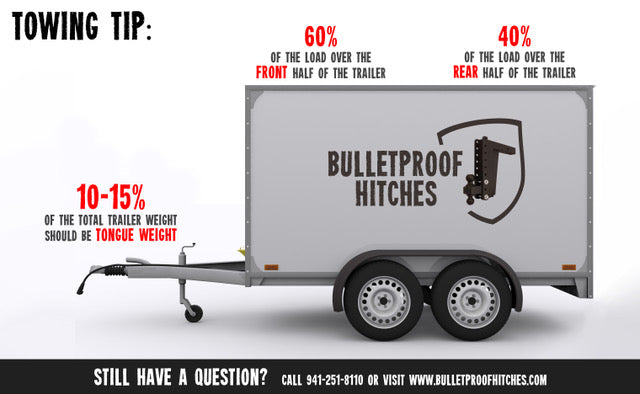
Your first-time towing can be stressful; let BulletProof Hitches take care of the basics with these trailer towing tips.
Know the essential acronyms and what they mean. UVW (Unloaded Vehicle Weight), GVW (gross vehicle weight), GVWR (gross vehicle weight rating), and GCWR (gross combination weight rating).
- UVW (Unloaded Vehicle Weight): The weight of a vehicle as manufactured by the factory.
- GVW (Gross Vehicle Weight): The vehicle's total weight and load at a point in time.
- GVWR (Gross Vehicle Weight Rating): The vehicle manufacturer's weight limit indicating the total amount the vehicle can weigh to operate safely.
- GCWR (Gross Combination Weight Rating): The maximum weight allowed of both the loaded vehicle and the loaded trailer
Your first haul.
Before your first haul, be sure to know your vehicle's towing weight limit. Every vehicle has a posted maximum tow rating; it's important to ensure that your vehicle can handle the job. Make sure that you have the correct hitch for your vehicle and the trailer you plan to haul. Having the right size and fit can make the experience seamless. Check that your trailer hitch was installed correctly. Proper trailer hitch installation is critical for your safety and the safety of others on the road.
How’s your trailer hitch?
Having the correct length hitch paired with the proper size ball is critical to a safe towing experience. BulletProof Hitches carries a wide variety of hitches (we carry 2”, 2.5”, and 3” Receiver Shanks) to accommodate any size truck lift or towing capacity. Selecting the right length hitch will ensure your trailer is level and that your trailer correctly tracks as you travel down the road. Pairing that hitch with the correct size ball is also important. BulletProof Hitches offers versatile two-sided balls rated for almost any towing capacity. This pairing ensures that your trailer is secure and applies the proper amount of force your tow package is rated for.
Don’t blow your load.
Balance your load! 10%-15% of the trailer weight should be the tongue weight of the trailer; with 60% of your total load weight towards the front half of your trailer. If your trailer is open-aired, ensure that your load is tied down with safety straps or tie-downs. If your load is not properly secured, it can shift and cause the trailer to sway. Your trailer should be level while towing to prevent any swaying while driving. Having a level trailer also keeps the tires from uneven wear. Be sure that you monitor tire pressure on both the vehicle and the trailer.
Worried about driving with a trailer?
Don't be! It can be easy to end up on autopilot while hauling your trailer. While driving with a trailer, the time required to safely turn and stop increases. It's essential to remain aware of your surroundings and allow extra space for your vehicle and trailer to maneuver safely. While changing lanes, be mindful of how far your trailer extends and that you have room to maneuver. Driving a trailer doesn't need to be stressful— slow down and take time to recall the basics.
Looking for the right hitch for the job?
Call our expert team at BulletProof Hitches today at 941-251-8110. Or, you can fill out our easy-to-use online form to find out more!
